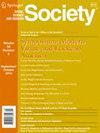The Mechanism of Panopticism and Society's Resistance to the Modern Healthcare System: A Study on Reactions to Power Relations in the Medical World
IF 1.4
4区 社会学
Q2 SOCIAL SCIENCES, INTERDISCIPLINARY
引用次数: 0
Abstract
Panopticism in the medical world reflects a structural dominance of power. Panopticism takes the form of medical regime authority aimed at surveillance, regulation, and discipline to frame the thoughts and actions of individuals in line with modern health standards. The issue is that panopticism doesn't always work effectively according to the desires of the medical regime. Therefore, this study aims to analyze the mechanisms of panopticism and identify the spectrum of resistance to the modern healthcare system. Using an applied method, the study found resistance in modern health practices, namely: (a) accessing modern treatment but accompanied by skepticism and criticism of modern medicine; (b) developing a pluralistic or combinative medical orientation; (c) opting out and constructing alternative discourses about the healthcare system following autonomy of will and power. Health resistance is triggered by skepticism and distrust, asymmetrical relations based on scientific authority, limited access to modern medical products, and the existence of informal networks, as well as the strong role of local social and cultural figures in directing the choices of healthcare systems for the community.全景主义与社会对现代医疗体制的抗拒机制——对医疗界权力关系的反应研究
医学界的全景主义反映了一种结构性的权力支配。全景主义以医疗制度权威的形式,旨在监督、管理和纪律,以符合现代健康标准的方式框架个人的思想和行动。问题是,全景主义并不总是根据医疗制度的愿望有效地工作。因此,本研究旨在分析全景主义的机制,并确定对现代医疗体系的抗性谱。使用一种实用方法,研究发现现代保健做法存在阻力,即:(a)获得现代治疗,但同时对现代医学持怀疑和批评态度;(b)发展多元化或综合医疗方向;(c)在意志和权力自治之后,选择和构建关于医疗系统的替代话语。卫生抗拒是由怀疑和不信任、基于科学权威的不对称关系、获得现代医疗产品的机会有限、非正式网络的存在以及当地社会和文化人物在指导社区卫生保健系统选择方面的强大作用引发的。
本文章由计算机程序翻译,如有差异,请以英文原文为准。
求助全文
约1分钟内获得全文
求助全文
来源期刊

Society
Multiple-
CiteScore
1.30
自引率
11.10%
发文量
132
审稿时长
12 weeks
期刊介绍:
Founded in 1962, Society enjoys a wide reputation as a journal that publishes the latest scholarship on the central questions of contemporary society. It produces six issues a year offering new ideas and quality research in the social sciences and humanities in a clear, accessible style.
Society sees itself as occupying the vital center in intellectual and political debate. Put negatively, this means the journal is opposed to all forms of dogmatism, absolutism, ideological uniformity, and facile relativism. More positively, it seeks to champion genuine diversity of opinion and a recognition of the complexity of the world''s issues.
Society includes full-length research articles, commentaries, discussion pieces, and book reviews which critically examine work conducted in the social sciences as well as the humanities. The journal is of interest to scholars and researchers who work in these broadly-based fields of enquiry and those who conduct research in neighboring intellectual domains. Society is also of interest to non-specialists who are keen to understand the latest developments in such subjects as sociology, history, political science, social anthropology, philosophy, economics, and psychology.
The journal’s interdisciplinary approach is reflected in the variety of esteemed thinkers who have contributed to Society since its inception. Contributors have included Simone de Beauvoir, Robert K Merton, James Q. Wilson, Margaret Mead, Abraham Maslow, Richard Hoggart, William Julius Wilson, Arlie Hochschild, Alvin Gouldner, Orlando Patterson, Katherine S. Newman, Patrick Moynihan, Claude Levi-Strauss, Hans Morgenthau, David Riesman, Amitai Etzioni and many other eminent thought leaders.
The success of the journal rests on attracting authors who combine originality of thought and lucidity of expression. In that spirit, Society is keen to publish both established and new authors who have something significant to say about the important issues of our time.
 求助内容:
求助内容: 应助结果提醒方式:
应助结果提醒方式:


